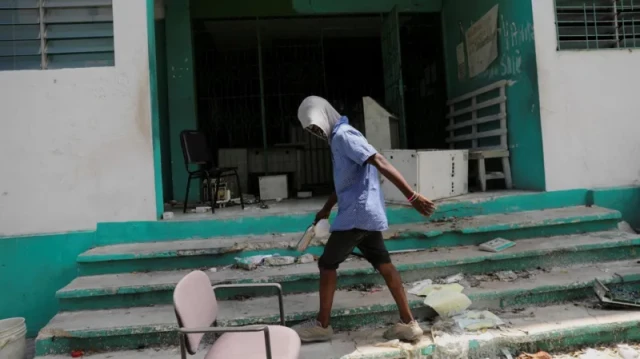UNICEF, the United Nations children's agency, has issued a grave warning regarding the healthcare infrastructure in Haiti, stating that it is close to complete collapse.
In a critical scenario where six out of every ten hospitals in the nation are barely functioning, Unicef's representative in Haiti, Bruno Maes, attributed the crisis to a combination of factors such as violence, mass displacement, dangerous epidemics, and escalating malnutrition.
Maes stressed that while Haiti's health system is facing various challenges, the "strangulation of supply chains" could ultimately prove to be the breaking point. Armed gangs, still in control of much of the capital Port-au-Prince, are a significant obstacle to the delivery of crucial medical supplies and aid, putting millions of children at risk of disease and malnutrition.
The instability in Haiti following the assassination of President Jovenel Moïse in 2021 has further worsened the situation.
Gangs have gradually taken control of large areas of the country, causing significant disruptions in essential services and worsening food insecurity.
According to Unicef, as many as 4.4 million people urgently need food assistance, with 1.6 million facing emergency levels of acute food insecurity, increasing the risk of child malnutrition.
Reginald Fils-Aimé, representing the Haiti-based Zanmi Lasante NGO, emphasized the significant impact of gang control on supply chains, which has hindered the transportation of healthcare personnel and essential medications.
He pointed out the shortages of crucial drugs such as IV fluids, diuretics, blood pressure medications, and beta-blockers, further straining an already fragile healthcare system.
Nadesh Mijoba, the country director of the Haitian Health Foundation (HHF), expressed sorrow over the closure of health services in many areas due to attacks and infrastructure damage.
She highlighted the growing number of patients seeking care from organizations like HHF, as they have to travel longer distances amidst the looming threat of violence and kidnapping.
Ms. Mijoba, who has been working in Haiti for over a decade, described the humanitarian situation in the country as reaching catastrophic levels. In response to the escalating crisis, Kenya is planning to deploy police to Haiti as part of an international taskforce aimed at restoring stability.
Haitian and US leaders discussed strategies to address the crisis, including efforts to secure Haiti’s main seaport and establish a humanitarian corridor for critical aid deliveries.
Despite recent political developments, such as the formation of a transitional council, gangs continue to exploit the power vacuum, leading to increased lawlessness in parts of the country.




















